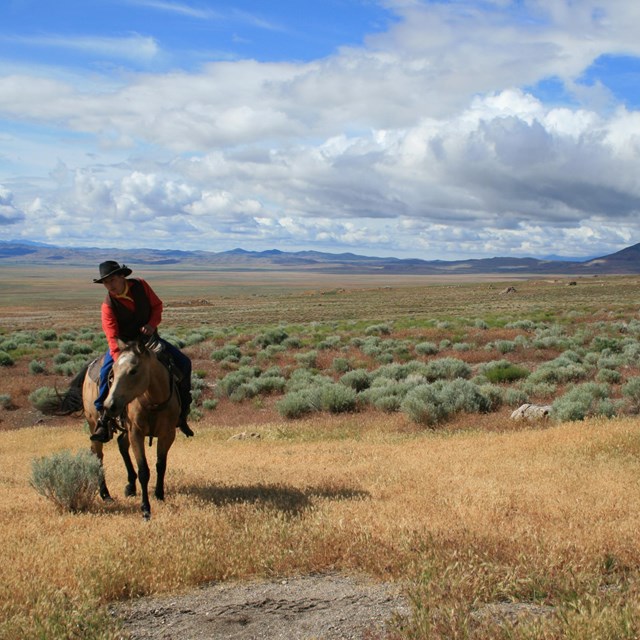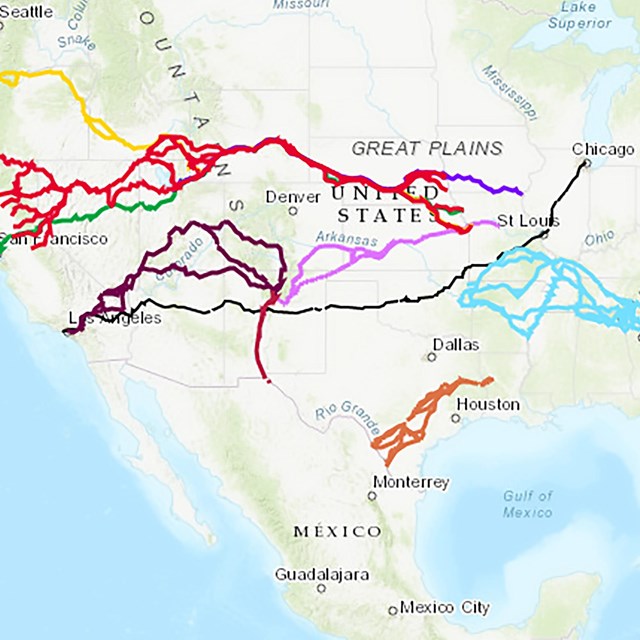Last updated: February 5, 2021
Article
The Pyramid Lake War

NPS image
Of the many potential problems facing the Pony Express - weather, supply difficulties, rider fatigue, etc. - the biggest one was unforeseen.
The Pyramid Lake War crippled the operation of the Pony Express starting in May 1860, and continued to do so for many months following. A case of white mineral-seekers encroaching on traditional Indian lands led to the war.
Following the discovery of silver in the Washoe Hills of Nevada in July 1859, white settlers poured into the region from both east and west. The abrupt arrival of so many whites naturally brought them into conflict with the Paiute Indians who lived in the area. Prospectors claimed water, feed and land for themselves without regard for the Paiutes' rights.
The Pony Express was also guilty of taking Indian resources. In the desert of western Nevada, for example, relay stations were built at critical water sources that the Indians depended on. Conflicts between whites and Indians became inevitable.
On May 7, 1860, an incident at the Williams Station in Carson Valley, Nevada set off the Pyramid Lake War. An old Paiute man and a younger Pauite woman went to a house owned by J.O. Williams, a white. Four white men in the house tied up the man and attacked the woman. The Paiutes were later set free but the Pauite man returned later with friends who forced the four white men into the house. The house was burned with the men in it.
The Pyramid Lake War had begun. The Paiutes claimed a big victory when they defeated U.S. Major William Ormsby's force in Nevada, but the Indians eventually were defeated.
Following the outbreak of the war, Indian raids became more common at the remote Pony Express stations in western Nevada. On May 21, 1860, a station keeper was killed and the station burned at Simpson Park Station. Major disruptions of the Pony Express ensued.
In June of 1860 the Pony Express canceled operations between Carson City and Salt Lake City because of the depredations. Service continued between St. Joseph and Salt Lake City, but little revenue came in from this stretch.
By July 1860, with the help of federal troops and stepped-up security measures, the Pony Express again began delivering mail to California. Delays had cost the company around $75,000. But the delays were not yet over. In August, trouble erupted again at remote stations in Nevada.
More delays ensued, further crippling the already struggling Pony Express. By the following year, delays in deliveries and lack of federal assistance would help shut down the Pony Express.


